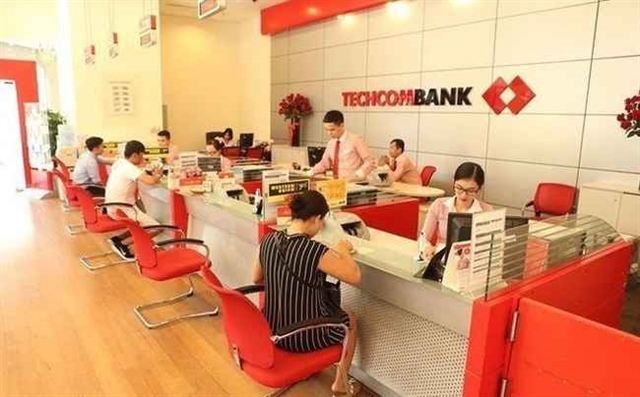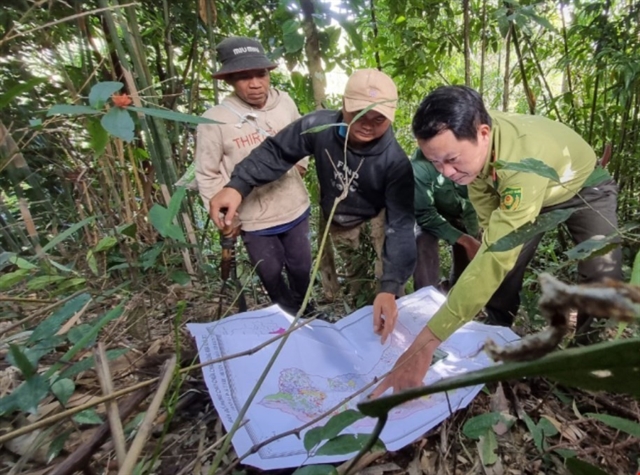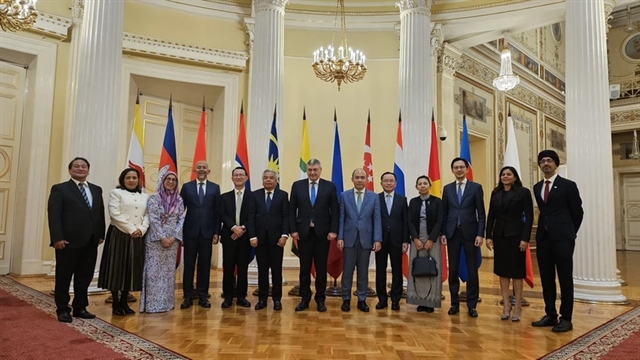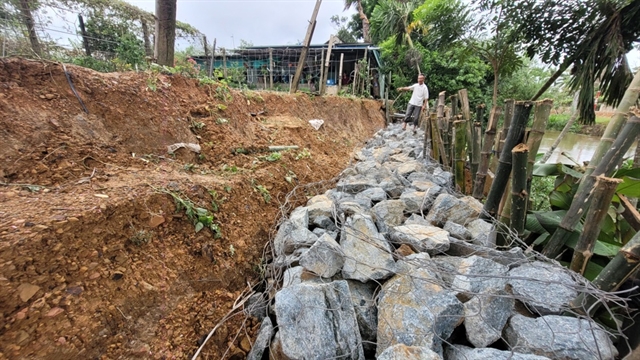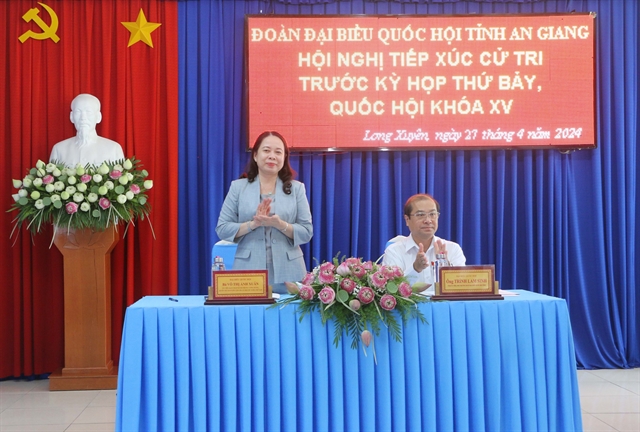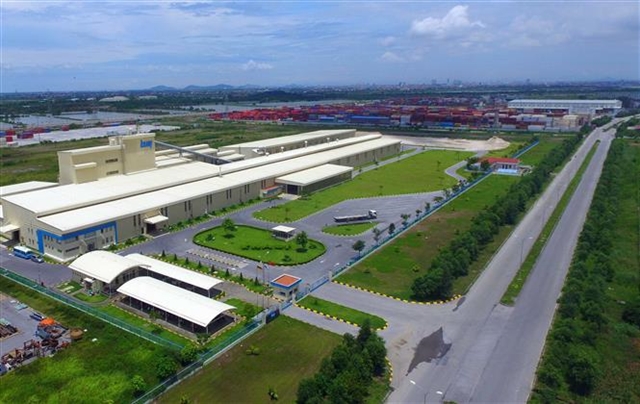 Economy
Economy

Financial inclusion has been an accelerating global phenomenon recently, with financial services being provided at affordable costs to disadvantaged and low-income segments to increase earnings, alternate social capital flow and promote economic growth, a conference heard on May 19 in HCM City.
 |
| Financial inclusion will contribute to implementing 7 out of 17 sustainable development goals by 2030 and poor countries might achieve breakthroughs in financial inclusion.— Photo vietnamnet.vn |
HCM City – Financial inclusion has been an accelerating global phenomenon recently, with financial services being provided at affordable costs to disadvantaged and low-income segments to increase earnings, alternate social capital flow and promote economic growth, a conference heard on May 19 in HCM City.
Speaking at ‘Digital technology – the great engine of accelerating financial inclusion in Việt Nam,’ Assoc Prof Nguyễn Kim Anh, deputy governor of the State Bank of Việt Nam, said: “Financial inclusion will contribute to implementing 7 out of 17 sustainable development goals by 2030 and poor countries might achieve breakthroughs in financial inclusion.
“Digital technology will help banks accelerate financial inclusion, expanding their financial services to remote and rural areas, saving expenditure and developing sustainably.”
Nguyễn Thị Hòa, deputy head of the central bank’s Banking Strategy Institute, said: “Good financial inclusion is able to promote economic growth, create more jobs and contribute to poverty reduction and hunger elimination.”
She attributed three achievements to Vietnamese banking inclusion.
She said the ability to approach financial services is increasing thanks to development of representative offices as well as modern baking service styles.
“Banking service products are more and more plentiful, the quality is getting better and better, and many services can be provided 24 hours a day, especially with internet banking and mobile banking services.”
A large number of people, even poor, can benefit from banking activities, she said.
“Việt Nam does not have any national policy to develop financial inclusion and has only a limited legal framework for banking activities and a shortage of database for individual and organisational clients.
“All these have hindered financial inclusion.”
She said promoting the role of digital technology to develop financial inclusion requires expanding internet banking and mobile banking, banking services, providing information and increasing understanding of banking services, completing the legal framework, and completing the financial and telecom infrastructure.
“Having a young population with up-to-date technology, a high rate of mobile phone and internet use and financial institutions using modern technology are favourable conditions for Việt Nam to speed up financial inclusion.”
Ivan Mortimer Schutts of the World Bank said: “It is important for the financial sector to be well protected and overseen by regulators to preserve its integrity and stability.
“It is also important that the State Bank of Việt Nam takes interest in promoting financial inclusion and makes sure efforts expended on technology innovation do not undermine the stability of the market and or contribute to risks that happen to the economy or consumers.”
Cấn Văn Lực, a banking expert, spoke about the current situation of financial inclusion in Việt Nam.
He said financial inclusion is not nationally synchronised and enforcement of norms is weak, the level of financial coverage is low, the network of financial institutions is unevenly distributed and mainly in urban areas -- only 10 per cent of rural communes have banks’ transaction points, which in turn account for only 10 per cent of transaction points nationwide -- micro-finance institutions operate in an ad-hoc manner and the informal financial system involving family, friends, black credit, pawn shops and others is not properly regulated.
“Credit to SMEs accounts for around 22 per cent of total outstanding loans, and access to finance is still difficult.
“Digital technology will reduce 80 – 90 per cent of transaction and management costs, minimise the need to establish physical branches, increase access to finance for people in rural, mountainous areas.”
Besides, digital technology will use various distribution channels like mobile and internet banking, ATMs, points of sales, social networks and Internet of Things, diversify products and services and meet customer needs.
“Digital finance could boost the GDP of emerging economies by US$3.7 trillion by 2025.”
Lực also suggested that credit institutions should consistently implement the decrees on non-cash payment and increasing access to banking services and microfinance development, and enhance payment risk and technological risk management.
At the first parallel discussion titled “Strengthening information security in the digital world towards advancing financial inclusion”, an official from the State Bank of Việt Nam’s informatics technology department presented information security strategies for banks in the digital age.
Financial and banking experts spoke about the digital technology applications required for accelerating financial inclusion in Việt Nam such as identity and access management solutions for online banking transactions, block chain technology to improve the efficiency of banking operations and information security solutions for mobile banking.
The second session with the theme “Developing digital banking services & payment innovation towards accelerating financial access” focused on orientation and solutions to accelerate financial inclusion in Việt Nam in 2016– 20, orientation to develop digital banking and financial services at commercial banks and encouraging non-cash paymetns to increase financial literacy.
IT enterprises spoke about digital solutions for accelerating financial inclusion in Việt Nam like mobile wallets and virtual customer care centres.
Banking Việt Nam is an annual ICT event organised by the State Bank of Việt Nam and IDG Vietnam to exhibit and introduce the latest technologies and IT applications for creating new banking products and services. -- VNS

.jpg)
